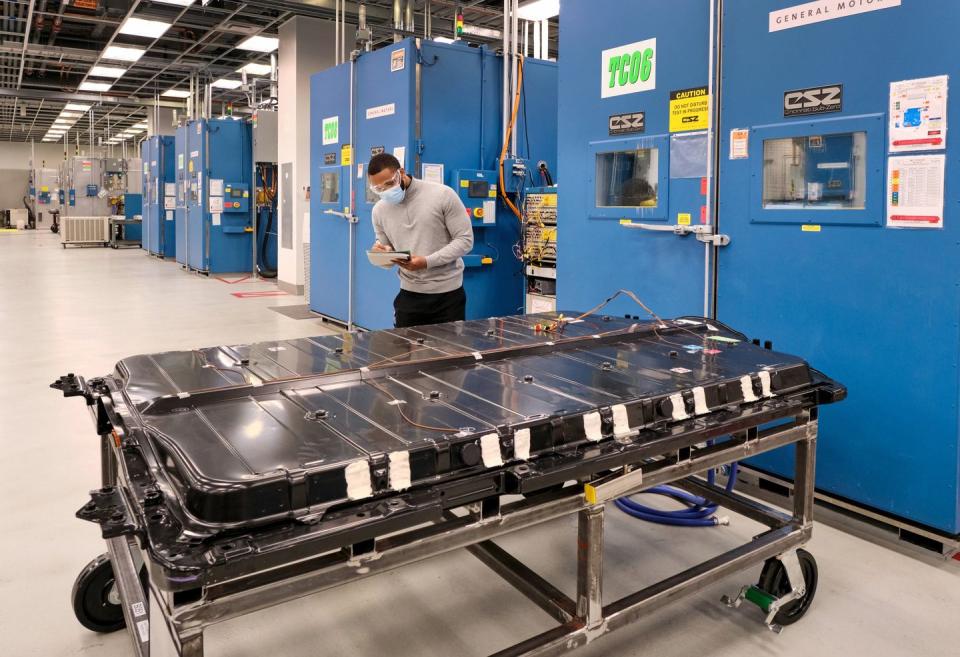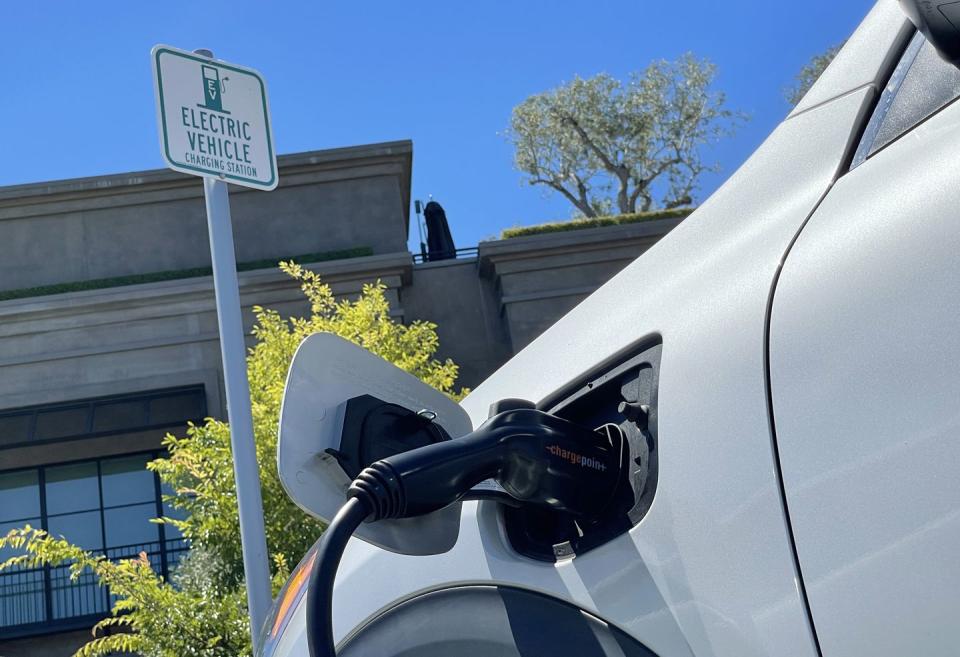Wyoming Legislators Want to Ban EVs by 2035

GOP state legislators in Wyoming have introduced a bill proposing a state ban on the sale of electric vehicles by 2035.
The bill claims Wyoming's power grid isn't set up for EV charging and that disposing of EV batteries will be challenging for municipal landfills, in addition to citing the importance of crude oil and gas to the state economy.
Wyoming's state legislature has yet to vote on the proposal, but the bill would also discourage state residents from purchasing EVs prior to 2035, if passed.
Bucking the electrification trend growing across the nation, state legislators from Wyoming are threatening to ban electric vehicles. Seriously, a group of six GOP lawmakers led by Senator Jim Anderson, R-Casper, introduced a bill that aims to ban the sale of EVs in Wyoming by 2035, the year that many states are set to ban the sale of internal-combustion vehicles.
Known as State Senate Joint Resolution NO. SJ0004, the proposal is in its fledgling stage after being introduced last week. The text of the bill cites the oil and gas industry as being one of the Cowboy State's proudest industries and one that is responsible for a significant revenue stream as well as mass employment for the people of Wyoming. Citing the historic usefulness of gas-powered vehicles in enabling continued growth in the state, these legislators claim that "Wyoming's vast stretches of highway, coupled with a lack of electric vehicle charging infrastructure, make the widespread use of electric vehicles impracticable for the state."

Additionally, the bill cites supply and environmental concerns over the continued production and subsequent disposal of EV batteries, claiming municipal landfill employees will require additional training and equipment to deal with these batteries. Other concerns include the charging infrastructure tax on Wyoming's power grid and a supposed inability to adequately engage in interstate commerce if electric vehicles are introduced en-masse to the state. "The misadventure of electric vehicles," as these legislators call it, will not be allowed to impede trucking routes nor undermine the preservation of the country's critical minerals, at least not under their watch.
That is, if the bill is voted on and ratified by Wyoming's Republican-controlled 60-member House of Representatives and 30-person Senate. At that point, Republican Gov. Mark Gordon would have three days to sign the legislation. Even if he doesn't respond, the bill goes into effect, at which point Wyoming consumers will be unable to buy an EV after 2035. In addition, Wyoming residents will be discouraged from buying an electric vehicle prior to the 2035 ban.
Lastly, the final resolution states that the passed bill will be distributed to the President of the United States as well as the President of the US Senate, the Speaker of the US House of Representatives, and the Governor of California, for reasons we can only assume are spiteful.

This proposal signals a strong opposition to state-by-state and federal moves toward clean energy and emissions reduction plans that include new-sales bans of internal-combustion vehicles. Following California's lead, a total of 15 other states have introduced plans to phase out new gas-powered vehicles, with phase-out dates ranging from 2030 to 2035.
While some states like Massachusetts and California are planning for outright sales bans by 2035, other states like Minnesota and Colorado are simply setting emissions or sales goals but have yet to commit to full bans. At a federal level, President Biden has launched a plan to make half of all new US vehicles electric by 2030, but this target is not legally binding.
The messaging is clear. Wyoming is asserting that its needs differ from others across the country, and that it can set a similar but also vastly different precedent in propulsion choice. While the text of this bill may be more of a political stunt, the energy grid of Wyoming isn't exactly set up for optimized clean EV charging, with coal-fired power plants producing about 73% of the state's electricity and 3/5ths of its electricity sent out of state.
Do you support sales bans of new ICE vehicles by 2035? Why or why not? Please share your thoughts below?

